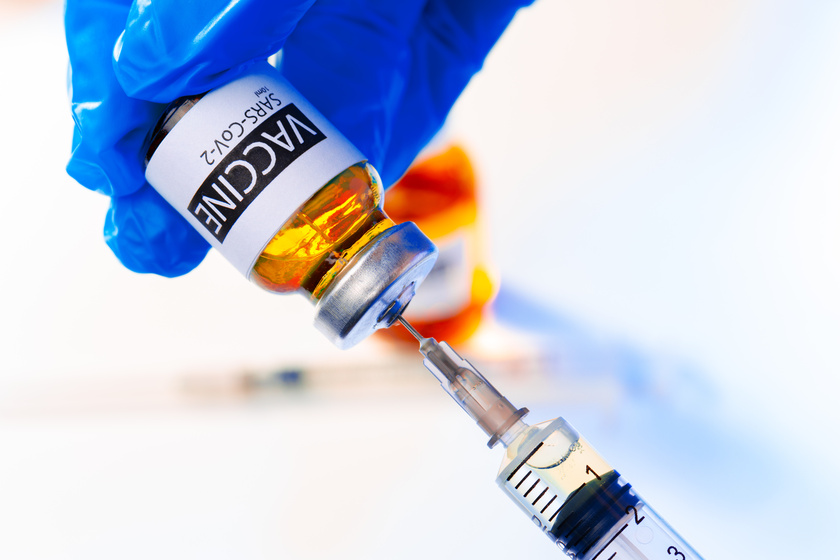NEW HAVEN, Conn. – Yale researchers are investigating a puzzling condition in which some individuals develop lingering symptoms after receiving COVID-19 vaccinations. The study, led by Yale School of Medicine’s Akiko Iwasaki and Harlan Krumholz, examines changes in the immune system that may be linked to these ongoing complaints.
The research, part of Yale’s Listen to Immune, Symptom and Treatment Experiences Now (LISTEN) Study, looked at blood samples from people reporting symptoms such as fatigue, brain fog, dizziness, insomnia and exercise intolerance soon after vaccination. The findings suggest that components of the immune response—along with traces of the vaccine’s spike protein—may be connected to the unexplained, persistent symptoms.
When I was part of the mainstream media, I couldn’t cover stories like this. Now, as an independent journalist, I’m committed to bringing you the unfiltered truth—and I need your help. For just $6 a month, you can become a paid subscriber and support my mission to deliver honest, fearless reporting. You can cancel anytime, but together, we can make a real difference. I can’t do this without you.
“We’re beginning to see that the immune system in some people might not be returning to its usual state after vaccination,” said Harlan Krumholz, Harold H. Hines, Jr. Professor of Medicine (Cardiology) at Yale School of Medicine. “This study is our first step in trying to understand what might be driving these symptoms.”
Researchers compared blood samples from 42 individuals who reported these chronic symptoms with samples from 22 individuals who did not experience any lingering issues after vaccination. They noted differences in the immune cells between the two groups. In those with ongoing symptoms, there were fewer effector CD4+ T cells—an important part of the body’s defense system—and an increase in TNF-alpha–positive CD8 T cells, which are linked to inflammation. These changes point to an altered immune response that could be fueling the symptoms.
Another significant finding was related to the vaccine’s spike protein. COVID-19 vaccines work by teaching the immune system to recognize the spike protein, a component of the virus. Normally, the spike protein is cleared from the bloodstream within a few days after vaccination. However, the Yale study found that some individuals had measurable levels of the spike protein more than 700 days after their last shot.
“That was surprising, to find spike protein in circulation at such a late time,” said Akiko Iwasaki, Sterling Professor of Immunobiology at Yale School of Medicine. “We don’t yet know if the persistent spike protein is directly causing the symptoms, but its presence might be one of the pieces of the puzzle.”
The study also noted that participants who had not been infected with COVID-19 had lower levels of antibodies against the spike protein compared to others. Researchers believe this difference could be linked to the number of vaccine doses received, as fewer doses would give the body less opportunity to develop antibodies.
Experts say that the condition, which some are calling post-vaccination syndrome (PVS), may share similarities with other post-infectious syndromes where chronic symptoms arise from a disrupted immune system or even from reactivation of dormant viruses. In this study, evidence suggested that some individuals with these lingering symptoms were more likely to show signs of Epstein-Barr virus reactivation, a virus known to cause mononucleosis.
“Different people might experience these symptoms for different reasons,” Krumholz explained. “For some, it might be an issue of immune dysregulation. For others, it could be related to a virus that has reawakened. We need to carefully map out these pathways to really understand what’s going on.”
The Yale team stresses that their findings are preliminary. More research is needed to confirm the immune changes observed and to determine exactly how—or if—they contribute to the ongoing symptoms. They plan to study larger groups of patients to see if the patterns hold true and to explore additional factors that might be at work, such as autoimmunity or tissue damage.
“If we can figure out why the spike protein is lingering for so long in some people, we might be able to remove it,” Iwasaki said. “That could open the door to treatments that might reduce or even eliminate these chronic symptoms.”
The study, published as a preprint on MedRxiv on Feb. 19, has already sparked discussion among clinicians and researchers who are keen to understand the full range of responses to COVID-19 vaccinations. While vaccination remains a crucial tool in the fight against COVID-19, understanding and addressing any potential adverse effects is equally important for public health.
For many, the symptoms of PVS are more than just a nuisance—they interfere with everyday activities. People have reported being unable to exercise, having difficulty concentrating at work, and struggling with sleep, which in turn can lead to anxiety and a decreased quality of life. The Yale study offers a glimpse into the complex biology that may be behind these issues and underscores the importance of further investigation.
“Our goal is to use rigorous science to give voice to people who are experiencing these symptoms,” said Krumholz. “It’s about ensuring that every patient’s experience is validated and that we eventually develop the tools to diagnose and treat this condition.”
As researchers continue to work on these questions, the hope is that a better understanding of PVS will not only lead to improved treatment for those suffering from chronic symptoms but also guide future vaccine development to minimize any unintended side effects. For now, the Yale study serves as a reminder that even well-established medical interventions warrant ongoing study to ensure that every individual’s health is safeguarded.
For more information and updates on this study, visit Yale School of Medicine’s website or follow updates on MedRxiv.




















